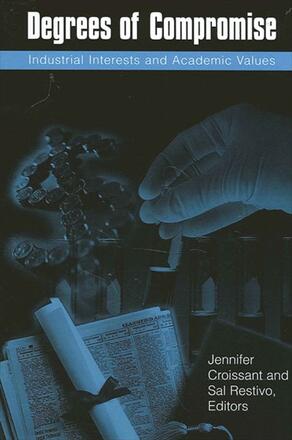
Degrees of Compromise
Industrial Interests and Academic Values
Alternative formats available from:
Analyzes value changes arising from new university-industry research relationships.
Description
Degrees of Compromise probes the convergence of for-profit business collaborations with higher education. Interdisciplinary in scope, the collection questions the effects of commercialization activities on undergraduate student values and graduate education practice and ethics, research autonomy, institutional prestige, and scientific imperatives such as objectivity.
Included are philosophical analyses of the professional status of faculty in higher education; ethnographic explorations of technology transfer, laboratory design, scientific assumptions, and graduate education; and a quantitative assessment of patenting and its relationship to institutional prestige and resources.
Jennifer Croissant is Assistant Professor in the Program on Culture, Science, Technology, and Society at the University of Arizona. Sal Restivo is Professor of Sociology and Science Studies at Rensselaer Polytechnic Institute. He is coeditor of Math Worlds: Philosophical and Social Studies of Mathematics and Mathematics Education, also published by SUNY Press, and author of Science, Society, and Values: Toward a Sociology of Objectivity.
Reviews
"Addresses a crucial set of questions, and provides careful, convincing evidence that ties to industry affect the values that science students and faculty hold. This is an extraordinarily interesting and important question for scholars as well as an issue of national policy interest. If scientists and students are driven by values of the market, there are potentially damaging implications for the kinds of knowledge that are produced and the social relations between scientists, students, and their clients. " — Kelly Moore, Barnard College